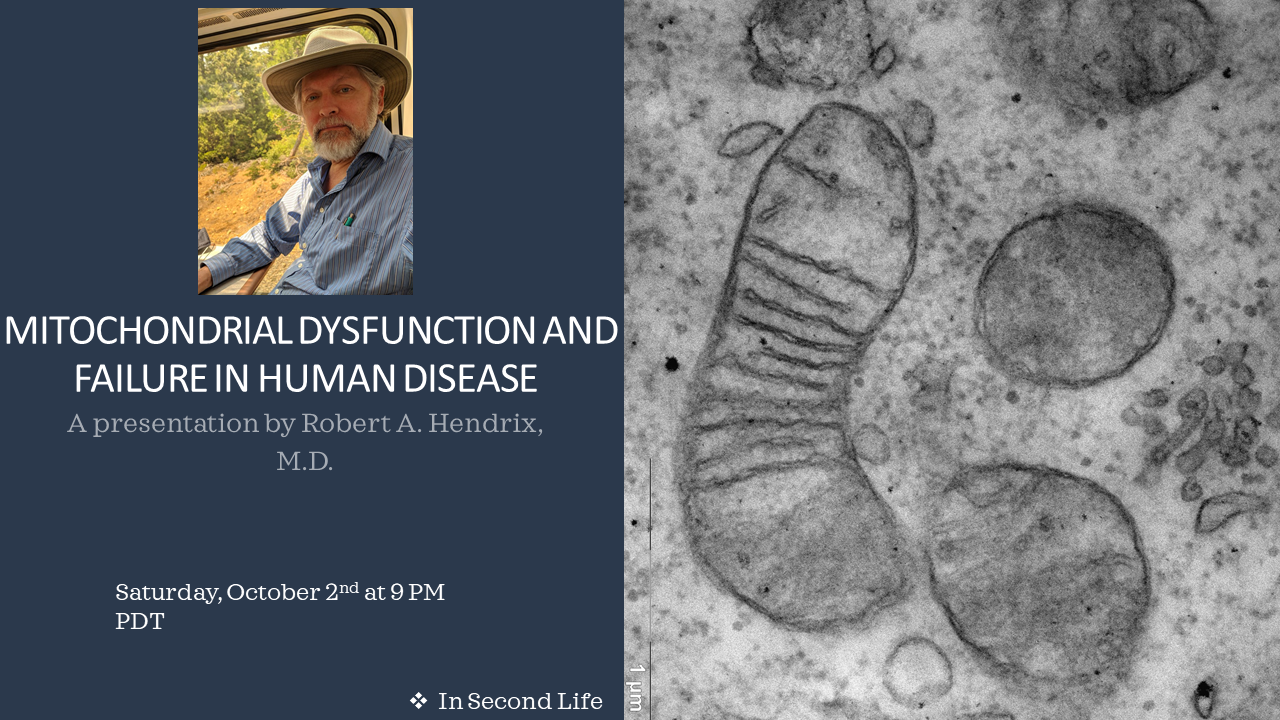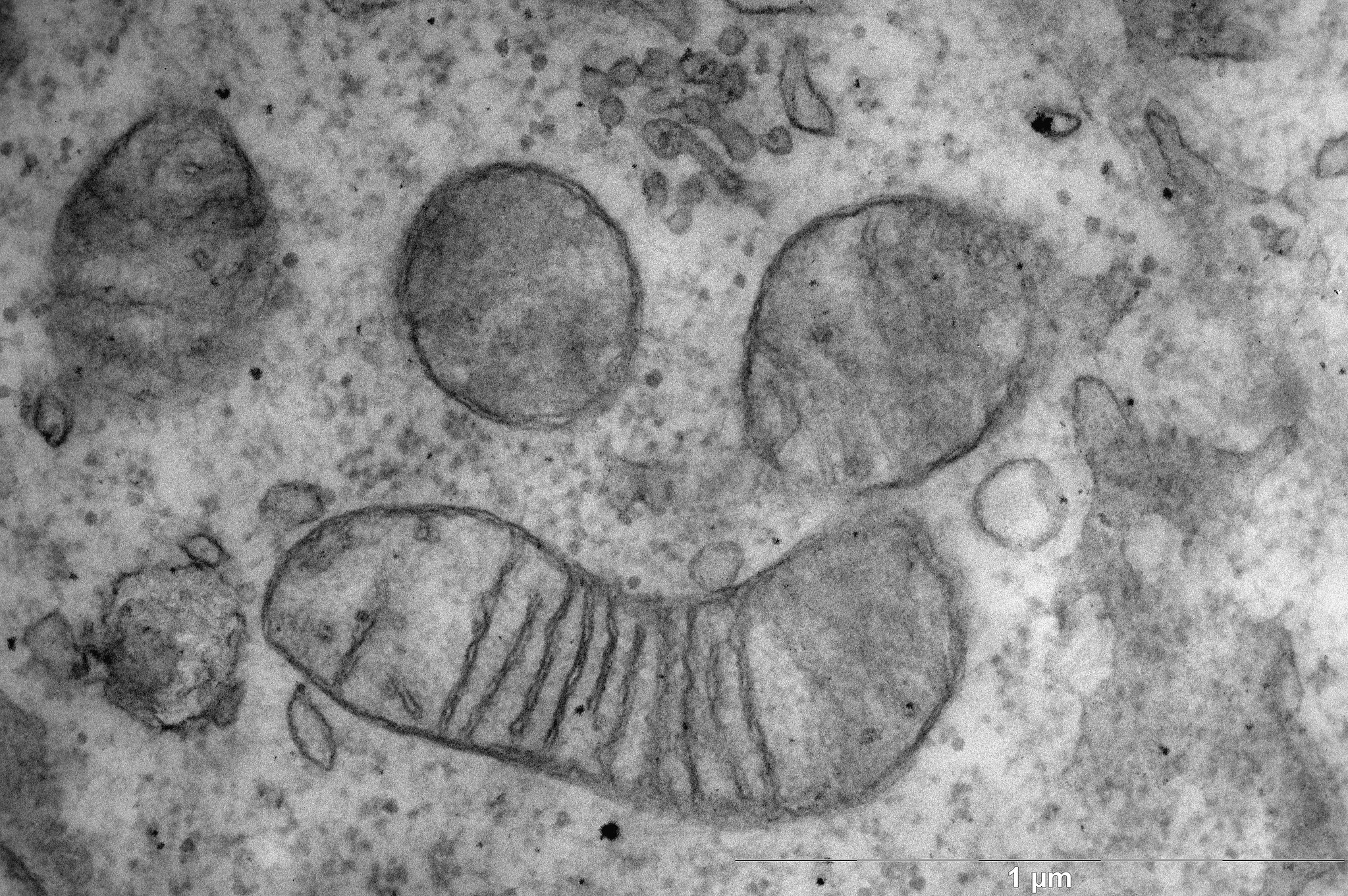
- This event has passed.
Mitochondrial Dysfunction and Failure in Human Disease
02/10/2021 @ 9:00 PM - 10:00 PM PDT
Free
Mitochondrial Dysfunction and Failure in Human Disease
 Some two billion years ago, a seminal, endosymbiotic event occurred: a larger, anaerobic bacterial cell ingested a smaller, aerobic prokaryotic ‘germ’. This beneficial union of two life forms led to the evolution of more highly organized eukaryotic cells with mitochondria as subcellular organelles. These mitochondria still retain their own bacteria-like DNA – they also replicate themselves. As the metabolic power source for eukaryotic cells, mitochondria utilize (detoxify) oxygen to produce energy, an attribute that has made possible the rise of multi-cellular organisms and higher life forms. Mitochondria are vital to cellular life and therefore, to human life. Unfortunately, they can also be subject to genetically-based errors of metabolism.
Some two billion years ago, a seminal, endosymbiotic event occurred: a larger, anaerobic bacterial cell ingested a smaller, aerobic prokaryotic ‘germ’. This beneficial union of two life forms led to the evolution of more highly organized eukaryotic cells with mitochondria as subcellular organelles. These mitochondria still retain their own bacteria-like DNA – they also replicate themselves. As the metabolic power source for eukaryotic cells, mitochondria utilize (detoxify) oxygen to produce energy, an attribute that has made possible the rise of multi-cellular organisms and higher life forms. Mitochondria are vital to cellular life and therefore, to human life. Unfortunately, they can also be subject to genetically-based errors of metabolism.
The mammalian mitochondrial genome (circular, double-stranded DNA) encodes 2 rRNAs, 22 tRNAs and mRNAs for 13 polypeptides of the oxidative phosphorylation (OxPhos) system -this is the water brigade-like, mitochondrial-membrane bound, Electron Transport Chain that drives the proton pump, which in turn, drives production of ATP with a high energy phosphate bond to sustain cellular biochemistry (purposeful energy production and utilization required for sustenance of life processes).
Mitochondrial diseases have been recognized in the past 30 years as a group of genetic disorders characterized by defects in oxidative phosphorylation. These are attributable both to mutations in genes that encode structural mitochondrial proteins or proteins involved in mitochondrial function:
- these mutations include genes in nuclear (chromosomal) DNA (nDNA) as well as mitochondrial DNA (mtDNA).
Mitochondrial diseases as a group of inherited metabolic disorders are in fact, among the most common forms of inherited neurological disorders. Diagnosis is often delayed:
- due to non-specific and varied symptom
- which can range from fatigue and exercise intolerance to failure to thrive in children, autism, dementia, diabetes mellitus;
- and finally, lack of suspicion for, or lack of awareness of mitochondrial diseases on the part of the diagnostician.

Advances in sequencing techniques of mitochondria have substantially improved diagnosis, particularly in children. In our REVIEW of HUMAN DISEASE of MITOCHONDRIAL ETIOLOGY, we will discuss common presenting symptoms – in particular, those involving organs with high energy requirements: central nervous system, cardiac and skeletal muscle, renal tubules, to name a few. Medical management of mitochondrial diseases will be considered along with some attention to “mitochondrial health”.
Presentation by Robert A. Hendrix, M.D.
Non-members only need to register once.
Is this the first time you will attend a presentation with us?
Follow this link first.
